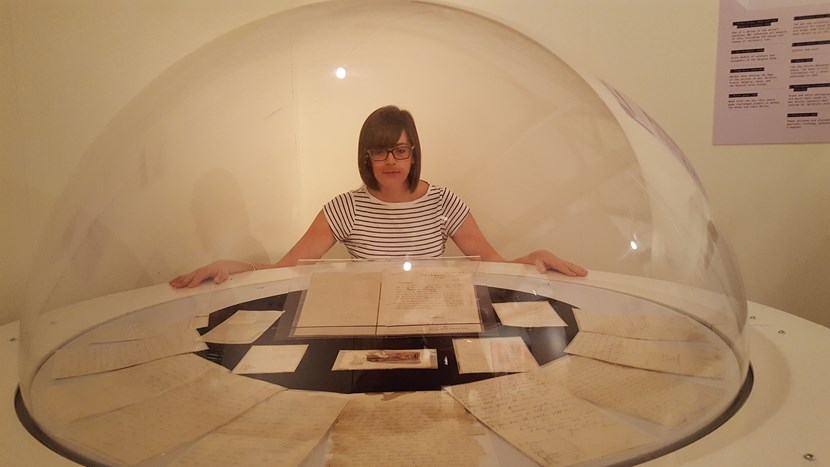
12 Sep 2016
Soldier’s heart-breaking letters home tell story of life in the trenches
Like thousands of men who went off to fight in the trenches of the First World War, Leeds man Leonard Wragby left behind an anxious wife and young child.
Keen to stay in touch with them, Private Wragby sent a steady stream of letters back from France, documenting his grueling life in the trenches and his desire to return home to his beloved family.
Now those letters, discovered in wardrobe in Leeds more than a decade ago, are on display at Leeds City Museum as part of a moving exhibition which lays bare the impact the Great War had on the lives of local people.
Private Wragby served with the West Yorkshire Regiment on the front lines, while Annie and their daughter Margaret waited for news at home.
His final letter to them, written in 1917 read: "It is about time it was over, I am thinking, but never mind so long as we both pull through alright.
“I haven't much to say this time but like to keep you posted so you can rest contented that I am alright. Christmas will soon be here now.
"I don't expect I shall be able to send another letter for a bit so, dear, goodbye.
"Wishing you and our little girl a prosperous Christmas and may I be home for the next."
Sadly, Private Wragby died just two days later at the battle of Arras in northern France on December 12, 1917, making Annie one of the 200,000 British women widowed during the conflict.
After her husband's death Annie never married again.
Ruth Leach, curator of exhibitions at Leeds City Museum, said: “Private Wragby’s letters give a powerful insight into the immense toll which the First World War took on both soldiers and their families.
“While the men who went away to fight had to endure life in the trenches, the wives and children they left behind struggled at home, facing huge financial pressure as well as the emotional turmoil of waiting for news of their loved ones.
“Those like Annie, whose husband sadly died in combat, not only had to cope with that loss, but also had to build a new life for themselves in a country where life for women was far different than it is today.”
Private Wragby’s letters are on loan from West Yorkshire Archive Service, who have kept them since they were found in the back of a wardrobe in 2004, years after Margaret, the last surviving member of the family, died in 1980.
Councillor Brian Selby, Leeds City Council’s lead member for museums and galleries, said: “The First World War had an immeasurable impact on the lives of so many people in Leeds, not least the wives and families who had to cope with the devastating and sudden loss of husbands and fathers.
“By exploring how profoundly the conflict affected those people, we can truly understand the human cost of war and how it changed the course of so many lives.”
In Their Footsteps is at Leeds City Museum until Jan 2017. For more details, visit: http://www.leeds.gov.uk/museumsandgalleries/Pages/In-their-Footsteps.aspx
A study day, entitled Soldiers and Technology will also take place on September 23, with a series of talks by local historians. Tickets are priced at £10. For more information or to book, visit: https://www.eventbrite.com/e/study-day-soldiers-technology-tickets-27025835000
ENDS
For media enquiries, please contact:
Stuart Robinson
Communications Officer
Leeds City Council
Tel: 0113 224 3937
Email: stuart.robinson@leeds.gov.uk
For media enquiries contact:
Leeds City Council Communications team
communicationsteam@leeds.gov.uk